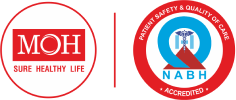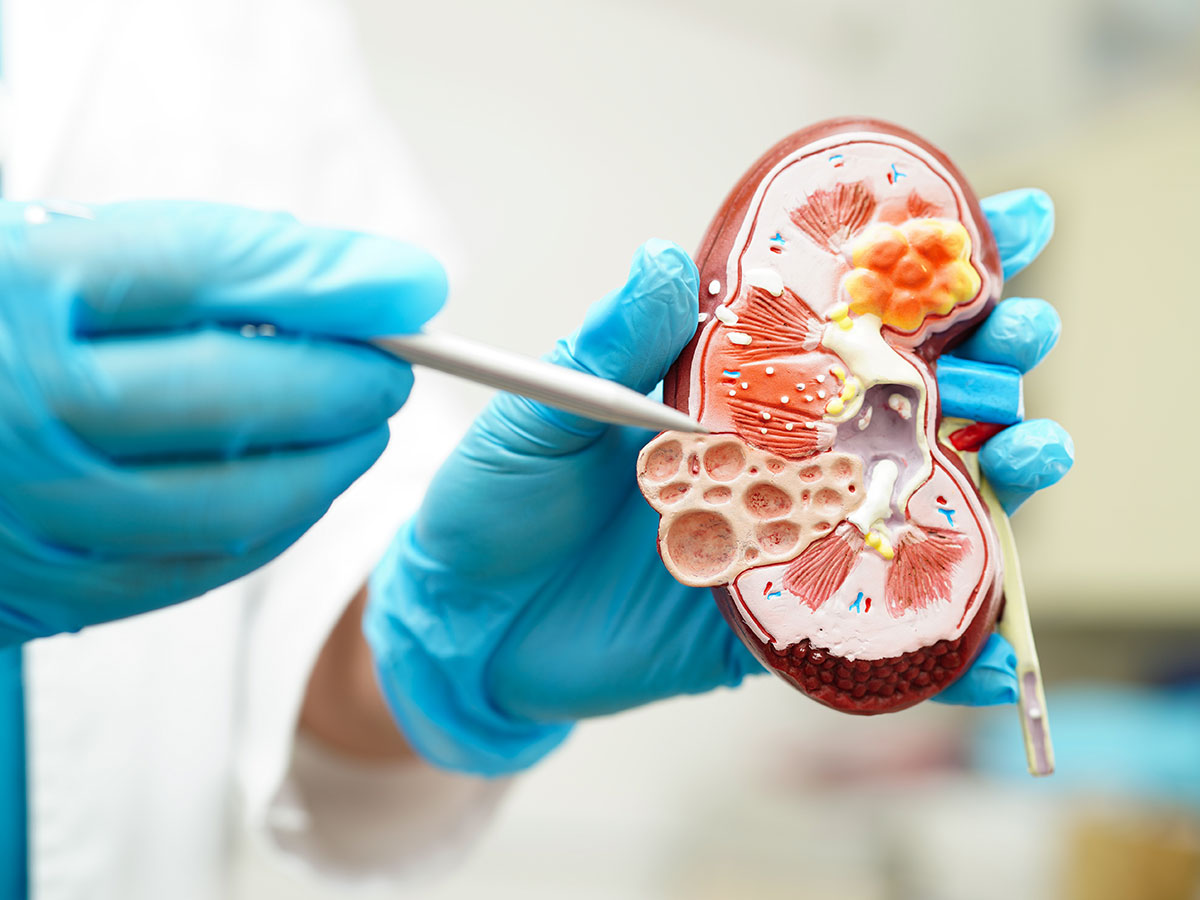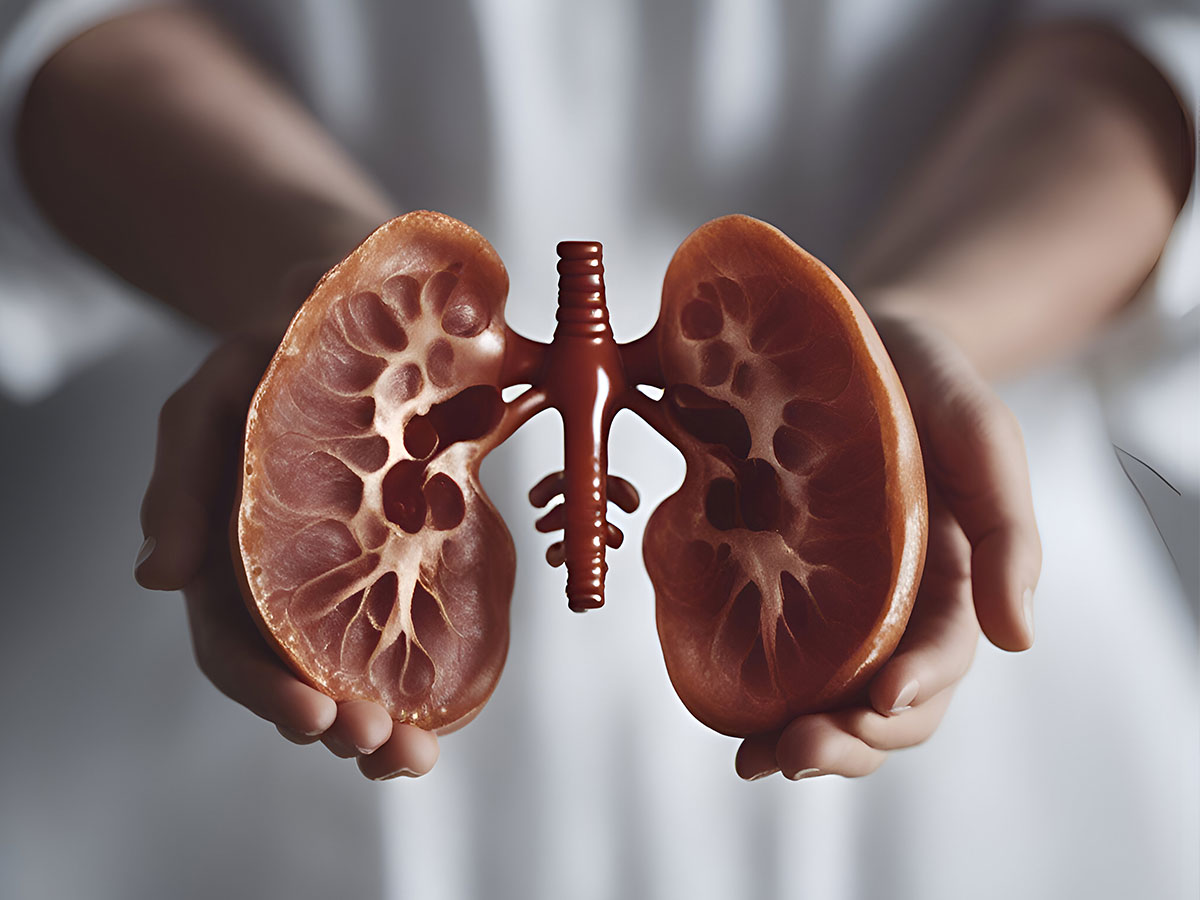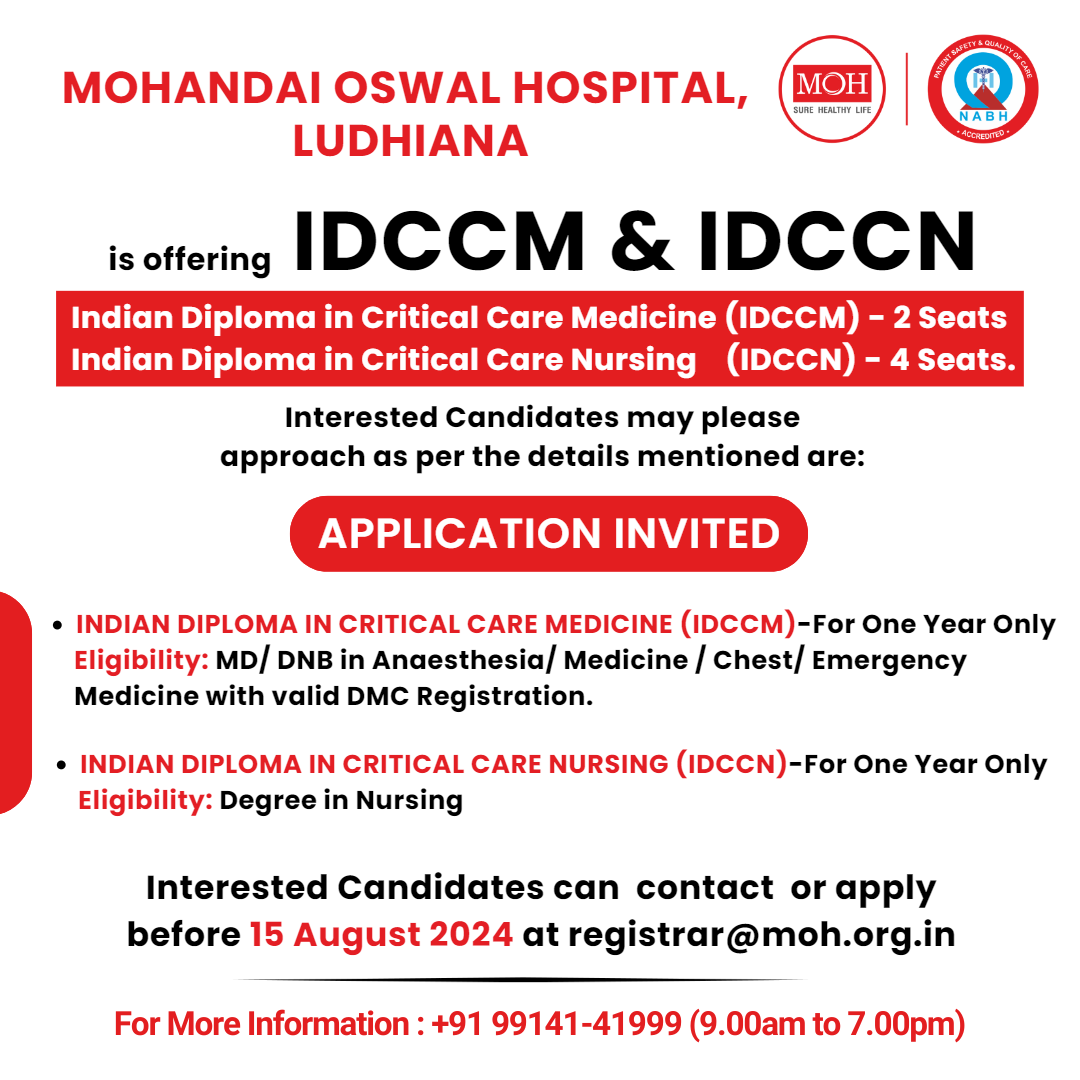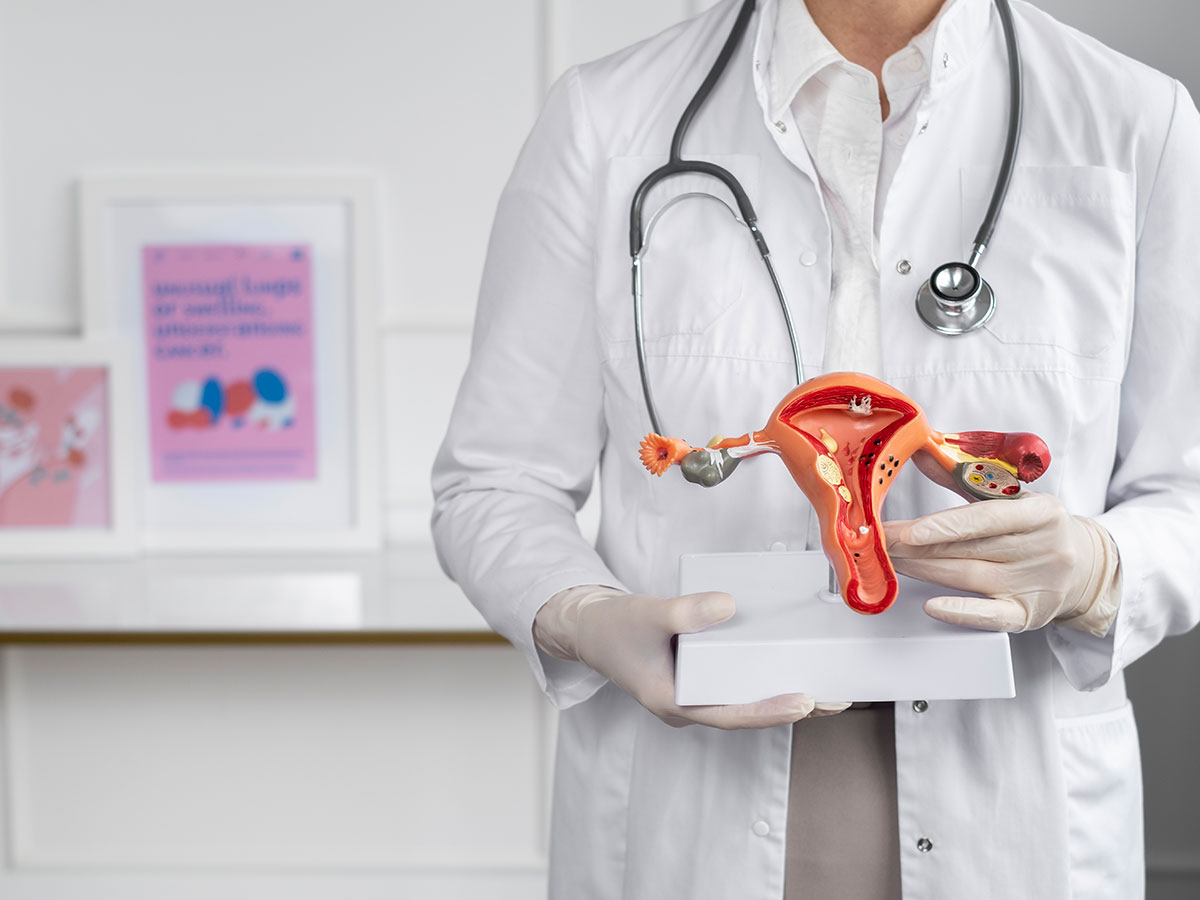
Polycystic Ovary Syndrome (PCOS) is one of the most common hormonal disorders affecting women of reproductive age. It manifests through a range of symptoms, including irregular periods, acne, weight gain, hair thinning, and even infertility. While PCOS has no definitive cure, it can be effectively managed through a combination of natural remedies, lifestyle changes, and medical treatment options.
In this comprehensive guide, we will explore how you can manage PCOS naturally, what role diet and exercise play in symptom control, and when medical interventions become necessary. If you're looking for professional help, Mohandai Oswal Hospital in Ludhiana can help you with expert diagnosis, treatment, and long-term care.
Understanding PCOS: A Quick Overview
PCOS is a condition where a woman’s ovaries produce an abnormal amount of androgens, which are male sex hormones that are typically present in women in small amounts. The name "polycystic ovary syndrome" describes the appearance of the ovaries — which may contain many small, fluid-filled sacs (follicles or cysts).
Common Symptoms of PCOS
- Irregular or absent menstrual cycles
- Excess facial and body hair (hirsutism)
- Acne or oily skin
- Weight gain or difficulty losing weight
- Hair thinning or male-pattern baldness
- Skin darkening (especially around neck and armpits)
- Fertility issues
The exact cause of PCOS is still unclear, but genetics, insulin resistance, and inflammation are believed to play a major role.
Natural Remedies for PCOS: A Lifestyle Approach
1. The Role of Diet in Managing PCOS
One of the most effective natural remedies for PCOS is adopting a PCOS-friendly diet. Since insulin resistance is a core issue in PCOS, diet plays a crucial role in managing symptoms.
Key Diet Guidelines for PCOS:
- Low Glycemic Index (GI) Foods:Focus on foods that don’t spike your blood sugar. Whole grains, legumes, fruits, and non-starchy vegetables are ideal.
- High-Fiber Foods:Fiber helps slow digestion and reduces the impact of sugar on the blood. Include broccoli, cauliflower, kale, spinach, and oats in your meals.
- Lean Protein Sources:Incorporate eggs, chicken breast, tofu, and legumes to stabilize energy levels.
- Healthy Fats:Avocados, olive oil, flax seeds, and nuts provide anti-inflammatory benefits.
- Anti-Inflammatory Foods:Berries, fatty fish like salmon, and turmeric can help reduce chronic inflammation associated with PCOS.
- Avoid Processed Foods and Sugars:Cut down on sugary drinks, white bread, and packaged snacks.
Sample Daily Meal Plan for PCOS:
- Breakfast:Oatmeal with chia seeds, berries, and almond milk
- Snack:A handful of almonds or walnuts
- Lunch:Grilled chicken salad with olive oil and lemon dressing
- Snack:Greek yogurt with flaxseed
- Dinner:Stir-fried tofu with quinoa and steamed vegetables
A registered dietitian at Mohandai Oswal Hospital in Ludhiana can help you tailor a specific meal plan that works for your lifestyle and medical needs.
2. Exercise: Moving Towards Hormonal Balance
Physical activity is a powerful tool in managing PCOS. Regular exercise helps combat insulin resistance, supports weight management, improves mood, and enhances fertility.
Recommended Exercises for PCOS:
- Cardio Workouts:Brisk walking, swimming, or cycling for at least 30 minutes a day, 5 days a week.
- Strength Training:Building muscle improves insulin sensitivity. Try weightlifting, resistance bands, or bodyweight exercises like squats and lunges.
- High-Intensity Interval Training (HIIT):This form of exercise alternates short bursts of intense activity with rest. It’s highly effective in improving metabolic function.
- Yoga and Pilates:These practices promote relaxation, reduce stress hormones, and improve insulin function.
Exercise consistency is key. You don’t need a gym membership — even daily walks and home workouts can yield great benefits.
3. Stress Management and Mental Health
Women with PCOS often experience higher levels of anxiety and depression. Chronic stress can exacerbate hormonal imbalances and worsen symptoms.
Stress-Reduction Techniques:
- Mindfulness Meditation:Just 10-15 minutes daily can lower cortisol levels.
- Deep Breathing Exercises:Help regulate the nervous system.
- Journaling:Writing down thoughts can provide emotional clarity.
- Sleep Hygiene:Aim for 7–8 hours of quality sleep to support hormonal health.
If you’re struggling with emotional symptoms, a behavioral health specialist at Mohandai Oswal Hospital in Ludhiana can help you with integrated mental health support.
Herbal and Nutritional Supplements for PCOS
Several herbs and natural supplements have shown promise in reducing PCOS symptoms. Before starting any, consult your healthcare provider to ensure safety.
Popular Natural Supplements for PCOS:
- Inositol (Myo-inositol and D-chiro-inositol):Helps improve insulin sensitivity and fertility.
- Berberine:A plant compound that lowers blood sugar and may support weight loss.
- Spearmint Tea:Reduces androgen levels and helps with hirsutism.
- Cinnamon:Shown to improve insulin sensitivity.
- Vitamin D:Many women with PCOS have low levels of Vitamin D; supplementation may improve menstrual regularity.
- Omega-3 Fatty Acids:Support hormonal balance and reduce inflammation.
Again, consult a professional — and Mohandai Oswal Hospital in Ludhiana can help you evaluate your supplement needs based on blood tests and symptom patterns.
Medical Treatment Options for PCOS
While natural remedies for PCOS can go a long way, some cases require medical intervention, especially when fertility is a concern or symptoms are severe.
1. Medications
- Birth Control Pills:Regulate menstruation, reduce acne, and lower androgen levels.
- Metformin:Commonly used to improve insulin sensitivity and regulate menstrual cycles.
- Clomiphene or Letrozole:Used to stimulate ovulation in women trying to conceive.
- Anti-androgen Medications:Help reduce hair growth and acne (e.g., spironolactone).
2. Fertility Treatments
- Ovulation Induction:Using medications like gonadotropins.
- Intrauterine Insemination (IUI) and In Vitro Fertilization (IVF)may be recommended for complex fertility issues.
Mohandai Oswal Hospital in Ludhiana can help you access advanced fertility solutions guided by experienced gynecologists and endocrinologists.
When to See a Specialist
If you suspect you have PCOS or if your current management plan isn’t working, it’s essential to consult a specialist. A thorough evaluation including hormone tests, pelvic ultrasound, and metabolic screening is often needed.
At Mohandai Oswal Hospital in Ludhiana, you can expect.
- Personalized care by experienced gynecologists and endocrinologists
- Advanced diagnostic tools and lab testing
- Nutrition counseling for PCOS
- Fertility assessments and reproductive treatment options
- Mental health support for anxiety or depression related to PCOS
Whether you're starting your PCOS journey or seeking a second opinion, Mohandai Oswal Hospital in Ludhiana can help you with compassionate and evidence-based care.
Long-Term Management Tips for PCOS
Living with PCOS is a marathon, not a sprint. Here are a few tips to keep your symptoms in check over time.
- Track your cycles with apps to notice irregularities early.
- Get regular check-ups, including thyroid, cholesterol, and blood sugar tests.
- Maintain a food and exercise journal for accountability.
- Stay educated: New research is always emerging.
- Build a support network: Join PCOS forums, support groups, or social communities.
Final Thoughts
Polycystic Ovary Syndrome can feel overwhelming, but with the right approach, you can take control of your health. Natural remedies for PCOS, including proper diet, consistent exercise, stress management, and targeted supplements, offer effective, long-term solutions. However, don’t hesitate to seek medical help when necessary.
Whether you're dealing with irregular periods, planning a pregnancy, or simply seeking a healthier lifestyle, Mohandai Oswal Hospital in Ludhiana can help you with integrated, patient-centric PCOS care. Take the first step today and empower yourself with knowledge and support.
